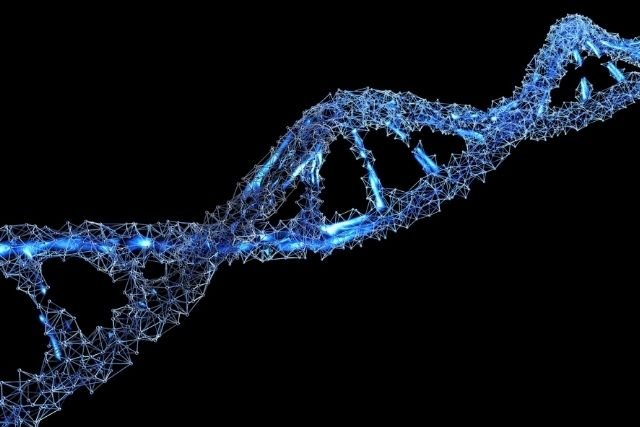When you or a loved one lives with fibromyalgia, questions about why and how it happens often arise. Today, scientists know much more about the origins of this complex condition. One area of fast growing understanding is genetics,the science of inherited traits. Let’s explore what the latest research reveals about how your genes may contribute to fibromyalgia, what this means for families, and why the story is about more than just DNA.
Decoding Fibromyalgia: It’s More Than Pain
Fibromyalgia is best known for widespread pain, fatigue, and brain fog, but it is deeply complex. Experts recognize that this syndrome involves how the body processes pain, influences mood, and even alters sleep. But what really starts these changes? For years, scientists hunted for clues in lifestyle, trauma, or viral infections. Then, a new pattern emerged: fibromyalgia often runs in families. That led researchers to genetics.
What Do Genes Have to Do With Fibromyalgia?
Genes are like instruction manuals. They provide the blueprint for building and running every cell in your body. Minor changes in these codes, called genetic variants, can affect how you sense pain, recover from stress, or react to your environment.
Research dating back decades showed that the risk for fibromyalgia is much higher among first degree relatives parents, children, or siblings of someone diagnosed with this condition. Some studies report that your risk can be up to eight times higher if a close family member has fibromyalgia compared to the general population. That’s a powerful signal there’s a strong genetic influence.
Which Genes Matter Most?
While there is no single “fibromyalgia gene,” recent research spotlights several genes that play important roles in how pain is processed, how mood is regulated, and how your body responds to stress:
- Serotonin pathway genes (5-HT2A and SLC6A4) help manage mood, anxiety, and how you cope with pain.
- COMT gene influences how your body breaks down neurotransmitters, impacting pain and stress responses.
- D4 Dopamine receptor impacts reward and mood pathways.
- TRPV2 and MYT1L are linked to pain threshold and nerve function, influencing both physical and cognitive symptoms.
- Newly identified biomarkers in recent studies include DYRK3, RGS17, and ARHGEF37, which are involved in nerve cell signaling and ion balance. These are now being explored as potential diagnostic tools.
Not Just Genes: The Environment Connection
Genetics is far from the whole story. The best research shows that fibromyalgia develops from the combined effects of genetic risk and environmental triggers, like physical trauma, severe stress, infection, or even chronic sleep loss. This means even if you have “risky” genes, you may never develop fibromyalgia without certain life events.
Science has also revealed the importance of epigenetics.small chemical changes that influence which genes turn on or off. These can be shaped by life experiences, stress, illness, or trauma, possibly raising or lowering your risk. Think of this as your genetic “dimmer switch,” gently tuning the activity of genes tied to pain or healing.
Key Discoveries from 2020–2025
- Diagnostic Breakthroughs: Using machine learning, scientists have identified combinations of genes that can help doctors diagnose fibromyalgia earlier and more accurately. This may lead to blood tests or other screening tools in the near future.
- Family Studies: Multiple studies confirm strong familial patterns, especially in younger patients. In those younger than 50, genetic risk plays an even greater role in their experience compared to older adults.
- Genome Wide Association Studies (GWAS): International research teams have found that up to 50% of fibromyalgia’s risk can be tied to genetics. Major findings include regions of DNA containing serotonin transporter and pain processing genes.
- New Gene Targets: Research has started to uncover completely new genes and pathways, suggesting fibromyalgia is shaped by a wider network of genetic and immune system factors than previously thought.
Is Fibromyalgia Inherited?
Fibromyalgia is not a simple inherited disease; there are no guarantees you will or won’t get it if it runs in your family. Instead, it’s about tendencies. Having relatives with fibromyalgia puts you at higher risk, but lifestyle, trauma, and stress also matter. The combined influence of genes and environment determines both risk and how severe symptoms can become.
Men and women with similar risk factors may have different experiences, as hormones and other biological differences can affect how genes “express” themselves.
Can Genetic Knowledge Help Patients?
Learning about your own genetic risk is empowering for several reasons:
- It may ease guilt or confusion about why you (or your child) developed fibromyalgia. It’s not anyone’s fault.
- Understanding the risk can drive earlier diagnosis and better tailored care, especially if other family members are affected.
- New knowledge about genetic biomarkers could pave the way for more precise treatments in the future. Researchers are now studying drugs that specifically target genetic pathways involved in pain.
The Hope on the Horizon: Personalized Fibromyalgia Care
As science advances, more genetic based treatments and diagnostics are on the way. Already, clinical trials are testing therapies that influence specific genes and nerve pathways. Future care may include genetic screening, allowing people at risk to take preventive steps, such as managing stress, improving sleep, or seeking counseling early.
Key Takeaways for Families Affected by Fibromyalgia
- Genetics play a major role, but are not the only factor. Your DNA may give you a higher risk, but it does not guarantee you will develop fibromyalgia.
- Environmental and life experiences. Stress, trauma, illness are essential components and can influence when and how symptoms appear.
- Family history matters. If a parent, sibling, or child is affected, the risk is higher but making healthy choices, managing stress, and seeking early support can make a difference.
- New discoveries are happening fast. The past five years have brought hope, with new genetic biomarkers identified and powerful diagnostic tools under study.
- If you’re worried about your family risk, talk to a healthcare professional. Genetic counseling may someday become part of routine care for those at higher risk.
Making Sense of Research: A Friendly Reminder
Fibromyalgia is real and rooted in real biology. You did not cause it, nor can you guarantee avoiding it, but you can take steps to nurture your wellbeing. Staying informed on the latest science can strengthen your own self advocacy and help you work with your care team to live your best possible life, whatever your genes. And remember, you’re never alone on this journey.










